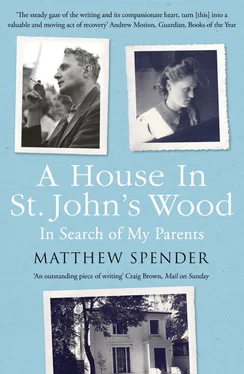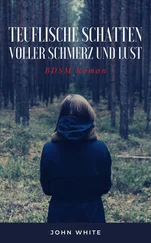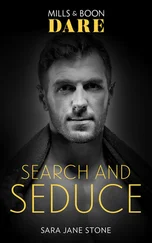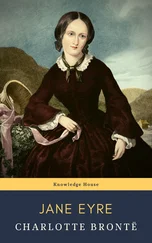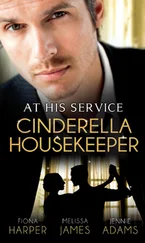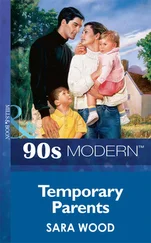I rang the lawyer and asked if we had to obey her wishes. ‘No,’ he said. ‘She had the right to destroy her property, you don’t. You could, but if I were you I wouldn’t.’
Raymond Chandler’s supposed passion for my mother had become one of the great ‘causes’ of her old age. A biographer had come across some evidence in Chandler’s archive and he believed that an affair had actually taken place. My mother went wild. Friends were asked to intervene. She who was so frugal spent hundreds of pounds on solicitors. In the end, the biographer gave in and the evidence was written up as a fantasy, but the letters I was reading in the piano room showed that their friendship hadn’t been quite as limpid as she’d always maintained.
While my mother was alive, I’d accepted her assertion that she was in charge of the past. She was the keeper of the flame, my father’s life belonged to her. She was obsessed by the thought that bad books would be written about Dad and lurk on library shelves waiting to ambush the innocent reader. Now, all those neat files would enter an archive. Wasn’t it my duty to present my parents’ lives in the best possible light, before hostile biographers started plundering them?
That’s what I thought, but a month after I’d started writing, my mother came to me in a dream. She was furious. ‘What makes you think you can write a book about us? For instance, what do you know about—’ and here she mentioned someone I’d never heard of. I mumbled an answer. ‘There you are,’ she said triumphantly. I explained hesitantly that if a book is well written, whether or not it’s the actual truth, it acquires a truth of its own.
In the background, my father sniggered. She asked, ‘And what are you laughing at?’ ‘Well,’ he murmured apologetically, ‘it only goes to show what he thinks of literature.’ I said that they were both dead, so they couldn’t be offended. The dead have no feelings, I said. My father stopped laughing and I woke up.
I lay there thinking how curious it was that they should behave in character, even in a dream. When they were alive, if my mother was determined about something, my father always backed down. But I wasn’t sure I understood what he meant about my thoughts on literature.
My father thought that literature should tell the truth. His poems were always built upon specific moments when life had been revealed to him in all its simplicity and nakedness. The poem had to bear witness to that vision and transcend the mere sentences of which it was made. The idea of truth was very important to him. In politics, which occupied a great deal of my father’s attention, ‘the truth’ meant one must never tell lies in the name of a higher cause, or sacrifice the rights of an individual in the name of the collective good.
These truths are complicated. Both, I think, involve ideas about England. But since I left England forty-five years ago, and since I refused to discuss any aspect of my parents’ lives with them while they were alive, what chance do I have of chasing the truth now?
At this point a memory comes back to me of my father’s study while he lived: the books and articles finished at the last possible minute, stuck together with tape and paperclips. The galley proofs, the glossy sparkle of the published version. To write a book is to embark on a quest, and if in this instance I’ve made mine more difficult, so much the better.
IT WAS W. H. Auden who taught me about adjectives. He stayed with us whenever he came to England. I was nine years old. Scene: 15 Loudoun Road, my parents’ house in St John’s Wood, eight-thirty in the morning. I was late for school. Wystan, with an air of having already been up for hours, was smoking at the breakfast table, bored or thoughtful, looking out of the window at the tangled ferns of the basement area. Mum and Dad were still in bed, in their bedroom with a large dressing-table on which lurked strange hairbrushes sold recently to Dad by a sadistic hairdresser who had persuaded him he was losing his hair.
I was in a panic over a test due that morning on what an adjective was.
Wystan looked surprised.
‘An adjective is any word that qualifies a noun,’ he said.
‘I know how to say that,’ I said. ‘But I don’t understand what it means.’
He looked around the table, discarded the cereals and found among the debris of the night before a bottle of wine. One object more memorable than the others.
‘Ah … you could say, the good wine,’ he said firmly. ‘Its goodness qualifies the wine.’ Then he thought for a moment, peering at the bottle. ‘The wine was good,’ he said, correcting himself; and added in a tragic voice, ‘now all we have left is an empty bottle.’
That summer, my sister and I had been abandoned on an island off the coast of Wales. I’d liked it. Lots of puffins, a few cormorants and numerous placid sheep. On top of the hill in the middle of this island were three grass tombs of long-dead Vikings, and Bardsey Island had left me with an obsession with barrow-wights and the sinister mystery of Norse ghost stories. Hearing about this later that year, Wystan sent me from New York the Tolkien trilogy, The Lord of the Rings . I read it straight through.
Auden used to say that he knew where every detail of this trilogy came from and one day he’d write about it. Dad tried it once but he found Tolkien tremendously boring.
Once, Wystan and I wrote Tolkienish poems together, still over breakfast but a few years after the adjectives. I collected them and copied them into a notebook that I decorated with a heraldic crest ‘with whiskers’, as that kind of shading was called at school. Here are a couple of verses:
God knows what kings and lords,
Had their realms on these downs of chalk,
And now guard their bountiful hoards,
One night you may see them walk.
They walk with creaks and groans
Cloaks fluttering as they go by,
They ride on enormous roans
Which block out the stars and the sky.
Lines two and four of each verse are Auden’s. ‘Can I use them?’ ‘Of course.’ I got the impression that words could be seized out of the air and given generously from one person to another.
My frequent readings of The Lord of the Rings always featured Wystan in there somewhere. The kind but didactic Wizard. In this earliest phase of knowing Wystan I intuitively grasped his own self-image as a young man, which was that of ‘Uncle Wiz’, an eccentric Victorian vicar with a bee in his bonnet about the Apocrypha. He didn’t want to be taken seriously every inch of the way. He liked to pontificate, but he also wanted be teased about it in return. It was part of his longing for universal love, a very strong need he had.
Wystan knew a great deal about our family. There’s a story of him running round and round the aspidistra at our house in Hampstead when he was a little boy. He was my uncle Michael’s friend at Gresham’s, Holt, the school they both attended. They were two years older than Stephen, who only met Wystan when they were undergraduates at Oxford.
At Gresham’s, Michael and Wystan had sat through a memorable occasion when Harold Spender came down to give the boys a pep talk. My grandfather read the parable of the Prodigal Son, and when he came to the words, ‘But when he was yet a great way off, his father saw him, and had compassion, and ran, and fell on his neck, and kissed him,’ Harold looked lovingly at his son Michael, perched at the keyboard of the organ in full view. I think Wystan must have remembered this story because, without intending to, Harold had for a moment become ‘camp’. Anyway, it was Wystan’s story. My father was at the under-school of Gresham’s at the time so he did not witness this memorable scene.
Читать дальше
